Why our sulphite free wines are different
Most people assume wine is simply fermented grape juice with a few necessary preservatives, and if it’s on the shop shelf then it must have achieved certain health standards. After all we have these regulations in place to protect us from eating or drinking harmful foods and beverages don’t we?
Unfortunately that is not the case and wine is one of the most controversial of all food stuffs when it comes to additives – it is just about the only food or beverage on the market that doesn’t have to list it’s ingredients on the label – have you ever wondered why? The (EU) authorities explain it away by saying “it’s complicated” – wine production is huge business in the founding EU countries of course. But they don’t tell you the reason why it’s complicated – that somewhere around 60 different additives are permitted in mainstream wines and over 40 are now permitted in EU Certified Organic wines. If these factory produced wines stated their ingredients on the label the chances are the vast majority of people would never buy another bottle again.
We hear plenty of reports about how two glasses of wine a day can give you cancer – that is precisely because these factory wines are full of chemical additives which are very harmful to your health. Sulphites have been “strongly linked” to causing cancer, have been requested to be banned by the Centre for Scientific Research in the Public Interest, and have been recommended to be phased out by the World Health Organisation. Plus anybody in remission for cancer is told to avoid all sulphites in their diet. According to Dr Phil Norrie (AKA The Wine Doctor), regular consumption of sulphite free wines on the other hand, due to their powerful antioxidants, can actually help prevent the likelihood of contracting cancer by as much as 50% and have a whole host of other health benefits.
Our Wine
Our sulphite free wines contain only one ingredient – grapes. They get fermented with their own natural yeasts and are generally bottled unfiltered. Just fermented grape juice with nothing added and nothing taken away.
Vines are sprayed with chemicals. Pesticides, fungicides & insecticides.
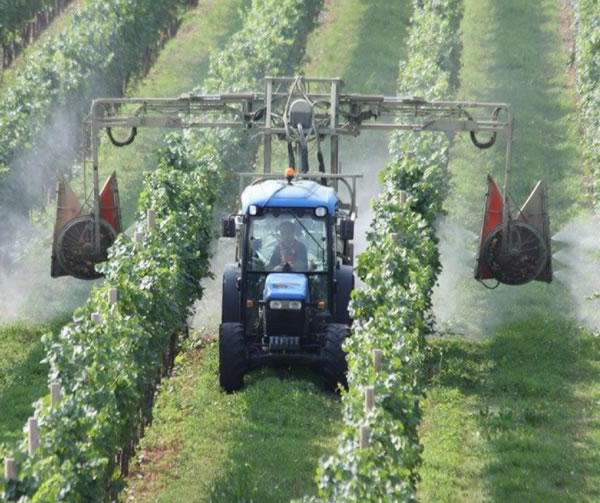
Both ripe and unripe grapes picked by machine, damaged going into hopper.
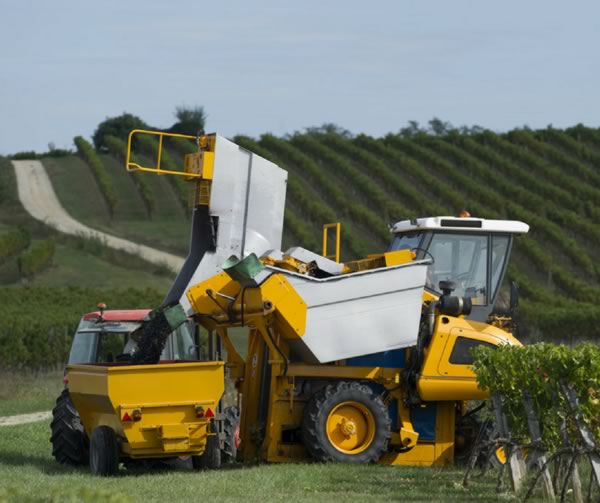
Grapes then get covered in a layer of sodium metabisulphite powder to prevent oxidation.
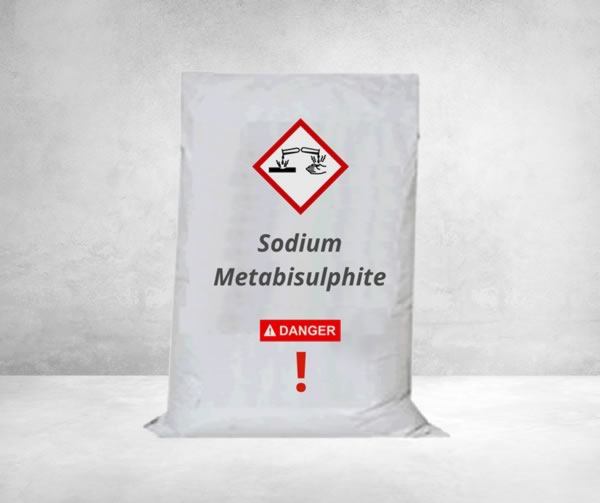
Wine produced on an industrial scale in a factory with over 60 additives permitted then heavy filtration
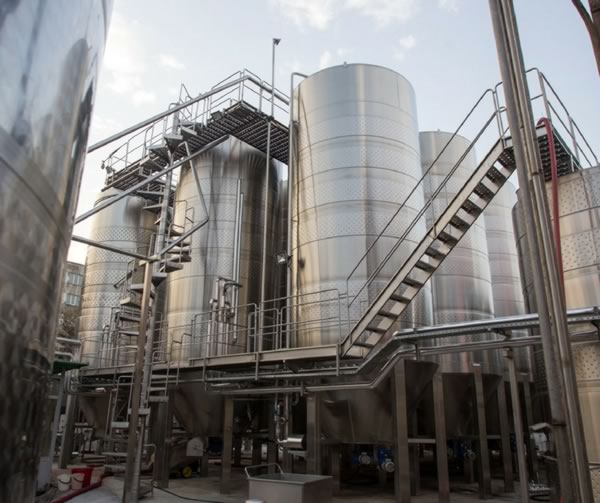
The entire process is automated from farming to bottling. More sulphites added at bottling stage.
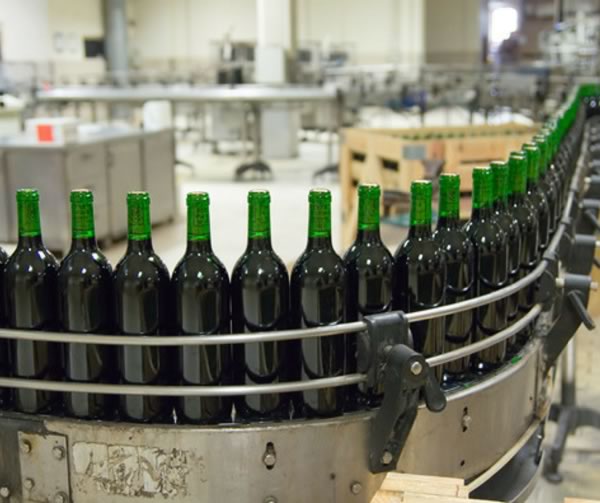
Vines tended by hand, no chemicals or machines in the vineyard.
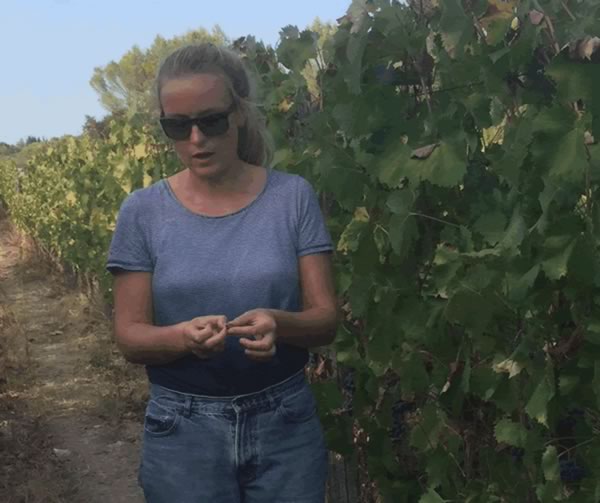
Only ripe healthy grapes get picked
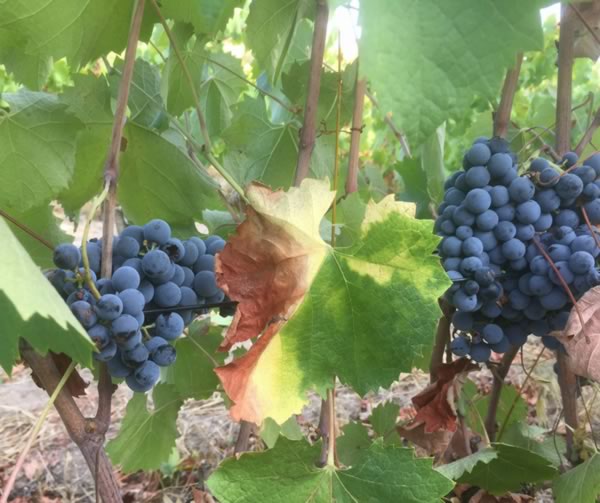
Grapes handpicked into small baskets to avoid damage then hand sorted so only the best are used.
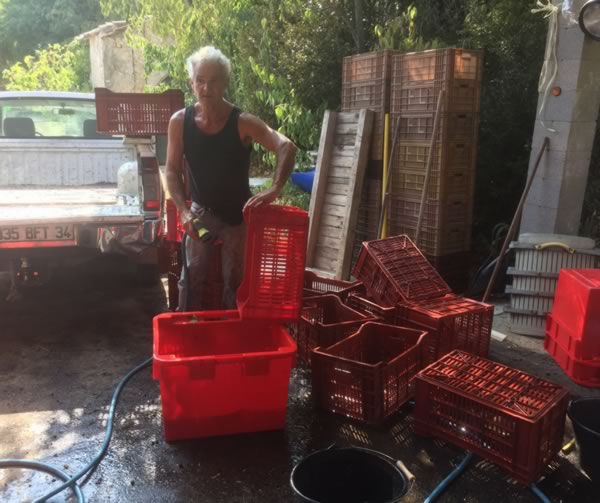
Wine made in tiny batches by hand with passion and care!
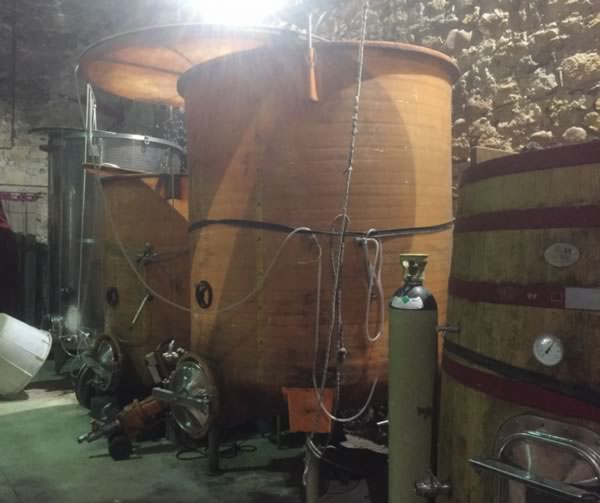
Wine is handmade from start to finish, from the vineyard to the bottling.
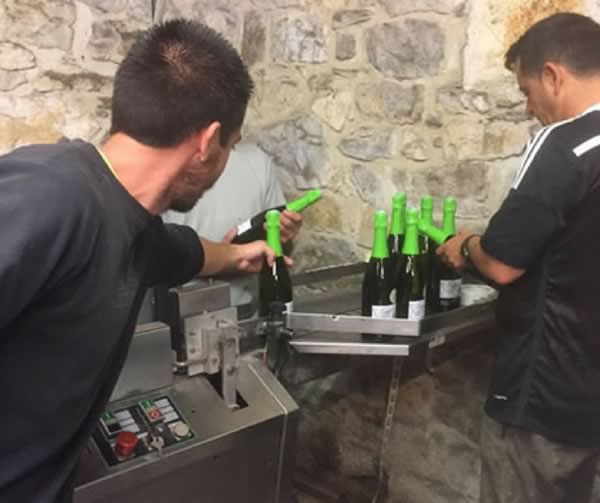
So what difference does this really make to the end wine?
Firstly with mass produced wines you can see that chemicals are liberally used in the vineyard. These get absorbed by the vines so are present within the grapes at harvest. Both ripe and unripe grapes are picked – this means some don’t have enough sugar, so extra sugar gets added. Some don’t have enough acidity so the dreaded tartaric acid is added too. This is the nasty acid that gives an intense burning sensation in the chest when drinking factory wines.
As the grapes get picked on a large scale, damaged by the machines harvesting them, then get tipped into open back trucks where they get squashed under the weight of more grapes, they split open and begin to oxidise immediately. To prevent this they are sprayed with either sodium or potassium metabisulphite powder, like icing on a cake. Then when the grapes finally get to the winery after waiting on the edge of the vineyard for the truck to be filled, the grapes are crushed and the must is fermented with introduced artificial yeasts chosen to give a false smell or taste to the resultant wine. At this stage “rectification” takes place. This is where the technician can start adding 60 or so different additives to correct problems and also to try to add artificial characteristics to the wine – tannin powders for example, or oak chips if they want to fool you that the wine has been aged in oak barrels.
The ferment is then fined and or filtered to get the particles out, which ironically contain the natural antioxidants – the good healthy part of the wine. These polyphenols like resveratrol are extremely good for us and help prevent a whole host of diseases including cancer, dementia, diabetes type 2, heart attack, stroke etc etc. However in factory produced wines they are removed.
Finally the bottling stage – chances are the wine is poor quality as it has been made from cheap low grade fruit. It will be very low in natural antioxidants so will need extra preservatives added – yet more huge doses of sulphites. A lot of wine is bottled in the UK to save a few pence on transport so is brought over here in inflatable bladders inside tankers, much like oil. These bladders are permeable and let in the air so huge amounts of sulphites are added so the wine will withstand the journey.
Let’s not forget the eye watering UK taxes on wine either. UK excise duty is £2.16 per bottle for still wine, around £2.70 for sparkling wine and around £2.80 for wines 15% abv or more. All plus VAT at 20% of course. So if you buy a wine for £5.99 over 50% of that is direct UK tax (£3.16). Take off the supermarket margin of 35% and you’re left with just pence to pay for the bottle, the label, the screwcap/cork, the international transport, the domestic transport – oh, and the wine itself!
Our Wines
Our wines are made by artisan producers who live an organic lifestyle. For them this isn’t some fad driven by money, or the latest craze in the wine retail world. It is their life. They believe passionately in making true wine as it should be without any chemicals whatsoever. Their wines are actively good for you and according to Dr Phil Norrie should be consumed daily in moderation for maximum health benefits. There are no adverse effects such as a hangover either. For anybody new to natural wines the style may be a little different to what you are used to, but once you get into them you will find it very difficult to go back to drinking highly chemicalled wines again.
Tartaric Acid
Calcium Alginate
Potassium Alginate
Potassium Caseinate
Casin
Isinglass
Silicon Dioxide
Edible Gelatine
Acacia (Gum Arabic)
Milk/Lactalbumin
Proteins of Plant Origin
Ovalbumin (Egg White)
Alumino Silicates
Ferrous Sulfate
Polyvinyl-polypyr-rolidone (PVPP)
Activated Charcoal
Lactic Bateria
Neutral Potassium Tartrate
Potassium Bicarbonate
Calcium Carbonate
Copper Sulfate
Oak Chips
Metatartaric Acid
Water
Concentrated Grape Must
Rectified Concentrated Grape Must
Saccharose
Tannin
Oxygen
Betaglucanase
Pectolytics
Urease
Fresh Lees
Ammonium Bisulphate
Thiamine Hydrochloride
Yeast Cell Walls
Yeasts for Wine Production
Diammonium Phosphate
Ammonium Sulphate
Ammonium Sulphite
Potassium Ferrocyanide
Calcium Phytate
Citric Acid
Calcium Tartrate
Porassium Bitartrate
Yeast Mannoproteins
Sorbic Acid
Sulphur Dioxide
Argon
Nitrogen
Potassium Bisulphite
Dimethyl Dicarbonate (DMDC)
Carbon Dioxide
Potassium Metabisulphite/disulfite
Allyl Isothiocyanate
Iysozyme
Potassium Sorbate
Ascorbic Acid
Grapes
